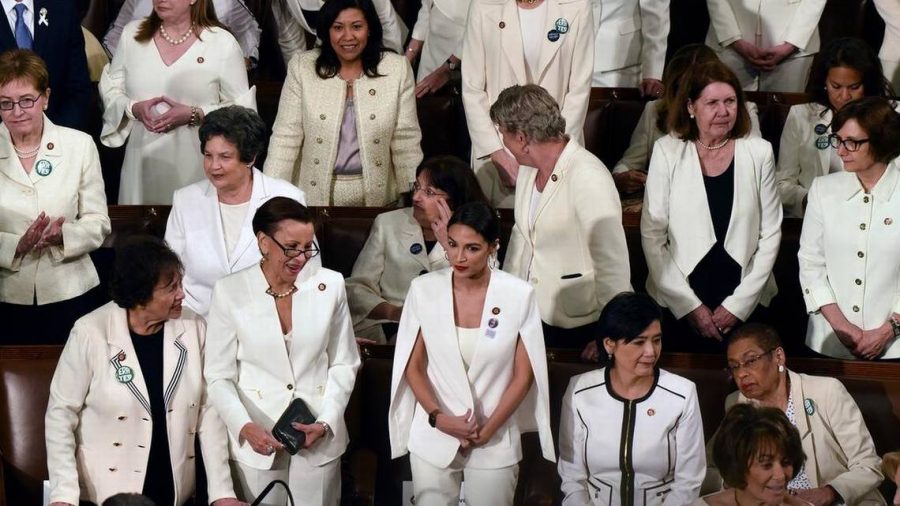The Lack of Women in Politics

Photo Credit/ Photo Credit/Modesto Bee
March 29, 2020
Throughout my life I have noticed something when reading my history textbooks. Why am I only learning about men as political leaders? I always knew of historical political women, but they were never in my textbook.
I still wonder about this topic to this day. Why is there a lack of women in political roles?
There is no reason why women are not equally found in important positions as men when are just as capable.
Although there is only a small percentage of women in political roles, the number is rising.
According to the Center of American Women in Politics, “In 2018, women held 110, or 20.6%, of the 535 seats in the 114th U.S. Congress – 23, or 23.0%, of the 100 seats in the Senate and 87, or 20.0%, of the 435 seats in the House of Representatives.”
For example, Alexandria Ocasio-Cortez, also known as A.O.C, is a representative fein New York’s 14th district. She is not afraid to stand up for herself and her beliefs. She expressed her concerns on climate change, healthcare, and immigration. A.O.C is such an inspiring young woman because of her candidness on certain political topics.
Even though the percentage is very low, it is a starting point.
We, as Regina girls, need to elect women to political roles so that women can have a say in government issues. Political women are some of the most inspiring women because they are not afraid to speak up. In a primarily male-dominated field, women are using their voices to make a change. We can too. We can write letters to our government expressing our thoughts and concerns on certain political issues.
Here is a link to the Center of American Women in Politics facts page. This organization provides information on women in political positions.
Together by electing women into political positions, we can make a change. We can allow young girls and women to have a voice in the world of politics. I hope to see the low numbers continue to rise as my generation and rising generations are able to vote and not only elect but become a future political representatives.


Ms. Tully • Apr 4, 2020 at 9:22 pm
Yes Violet! So we’ll put!